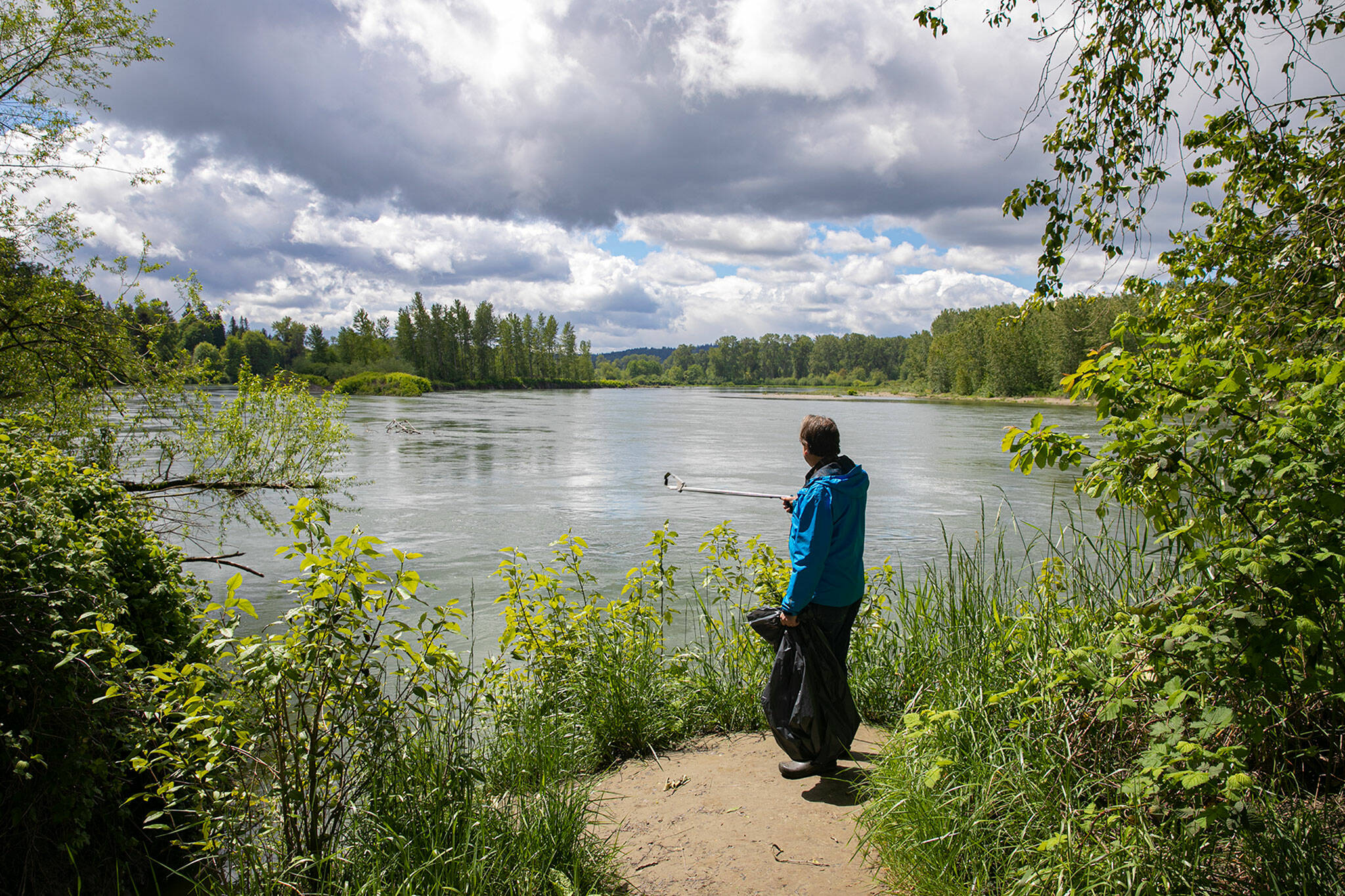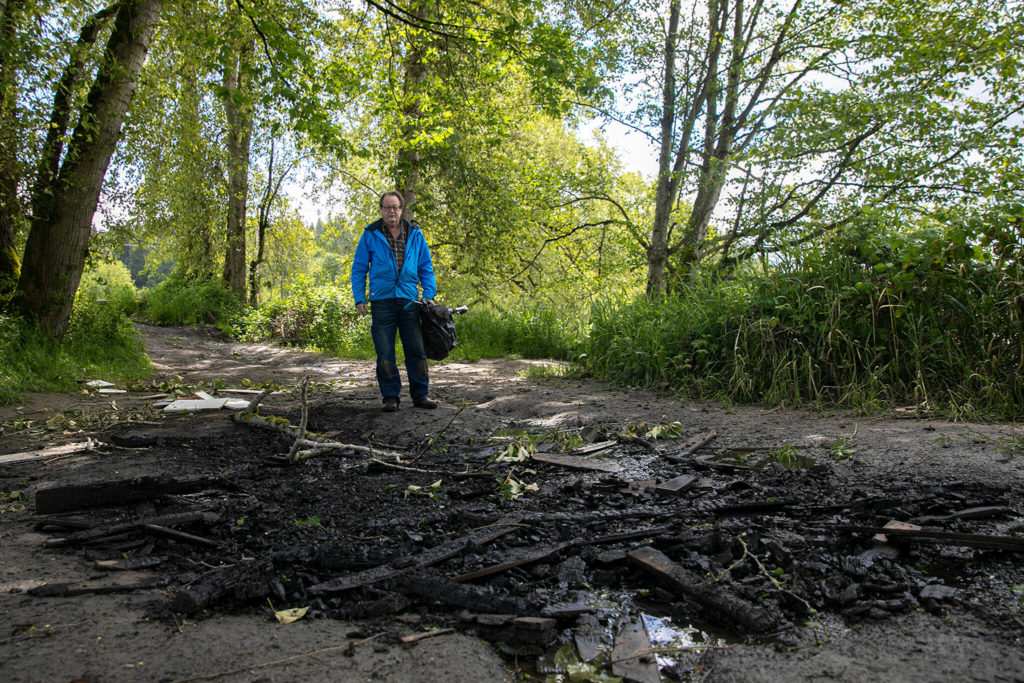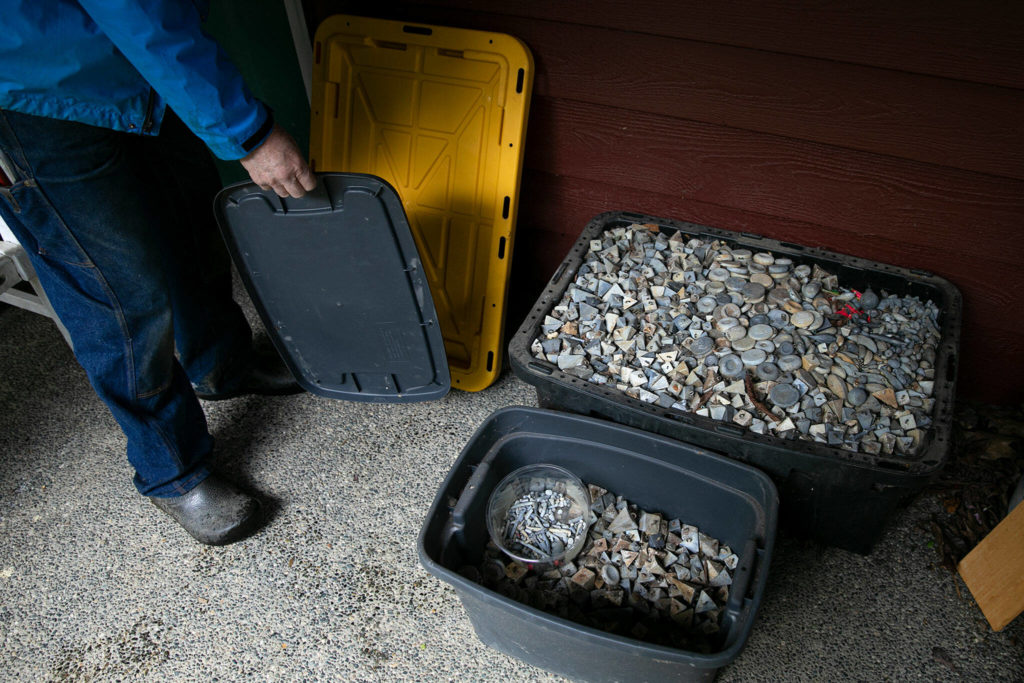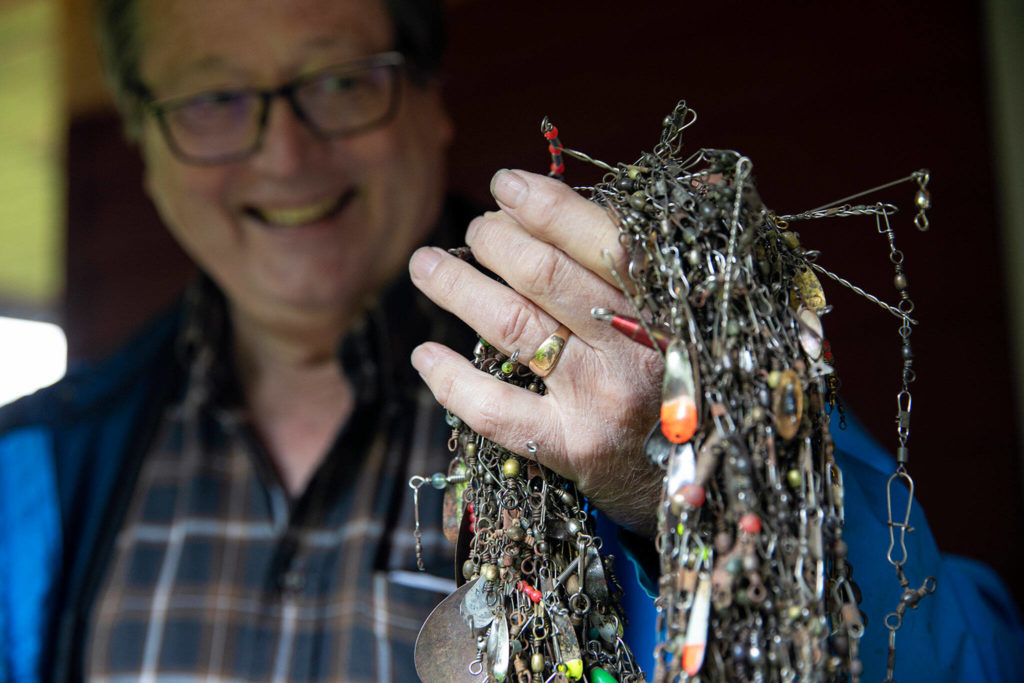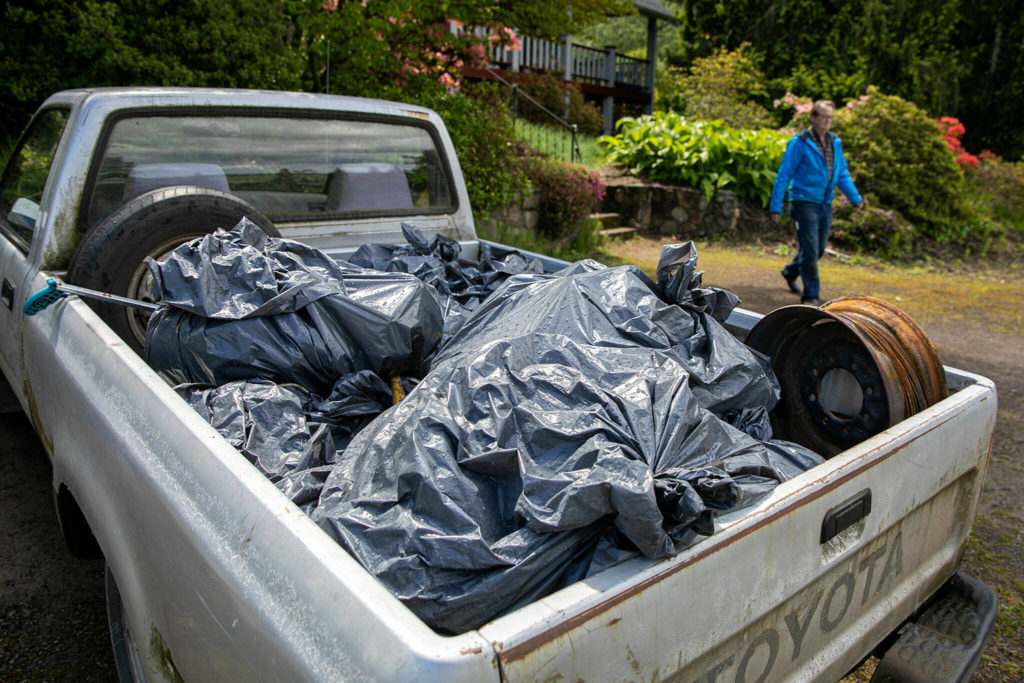SNOHOMISH — Every summer for the past decade, Doug Ewing puts on his diving gear: A pair of cutoffs, a shirt, a straw hat and a face mask.
He’s hunting for garbage in the Snohomish River.
In particular, he’s looking for lead.
At Thomas’ Eddy across from the Bob Heirman Wildlife Park, he’ll dive into the clear water in search of tell-tale monofilament lines sticking out of the riverbed, dancing with the current. Almost always these lost lines are tethered to a lead weight. He grabs a hold and rips them out.
Ewing, who lives just up the hill with his wife, has cleaned up this little stretch of the river 10 years or so now. He adds these sinkers to his collection, stored in a couple bins outside his house. He has thousands of all shapes and sizes: flat circular discs and pyramids and spheres and droopy oblong ovals. Some might be over a century old. People have been fishing these waters forever, and Ewing might be the first guy to try to clean them up.
Judging by the size of the bins, and how heavy lead is, he estimated he has collected some 3,000 pounds.
He told a Herald reporter to try and lift the smaller bin. “Don’t strain yourself.”
The reporter tried to lift, making sure to bend his knees. The bin barely budged.
It’s Ewing’s retirement project. Now 68, he used to be the greenhouse manager for the University of Washington’s biology department, where he once showed off a 9-foot-tall agave plant.
Now he’s concerned about his river. Ewing calls lead “eternal garbage.” It’s an element. It’s not going to decompose. Instead, those weights are going to sit in the water with the potential of poisoning the river and everything that uses it. Birds and fish, for example, might inadvertently swallow smaller sinkers. Or the lead may dissolve over time and infiltrate water and soil, and get passed onto plants and critters.
Lead is cheap, “damn dense,” traditional, Ewing says. He wants to see a total ban of the toxic substance in hunting and fishing, but he fears he’ll never see that. Getting rid of it would transform how many people go about fishing.
The use of lead in paint and gasoline has already been banned, but lead fishing weights have been slower to gain attention. To protect the common loon, which has been known to ingest and die from lead, Washington has restricted using lead sinkers that measure 1½ inches or less at a dozen lakes. Other states have gone further, completely banning the sale and use of smaller lead weights.
Even if lead isn’t totally banned any time soon, Ewing carries on with his task. He sees his bins of lead, collected from about a quarter-mile of river, as a data point. If there’s this much lead here — albeit in a rather popular fishing spot — how much must there be in all of Washington’s waterways? And what is the effect of all that?
Ewing took closer notice of the garbage in the river about a decade ago. Maybe someone would park for lunch and toss out their beverage bottles or their McDonald’s bags and go on their way.
“It bothered me,” he said. “It really bothered me.”
So he did something about it.
He soon found there was quite a backlog.
First he spotted the “24-hour garbage,” the stuff that appears daily, like the McDonald’s bags.
Then Ewing started seeing what he called “old garbage,” like flip-top cans that were banned in the ’70s. He guessed he gathered thousands of cans when he first started. “Like every three feet was a beer can.”
He’d find bottles and tarps and tires, too, that had been apparently sitting around for months, years, decades.
Last, Ewing realized the extent of the aforementioned “eternal garbage,” like lead and batteries. One time, he found 37 pounds of batteries scattered on the riverbed that someone had apparently dumped. It took him over two hours to pick them all up.
There’s no one person or group of people to blame, he said. Everyone is littering. It could be the people who come here to fish, those who stop by for a quick lunch or a dip in the water, or folks partying at the Oscar Hoover Water Access Site. Everyone is responsible for what they leave behind — though it’s hard for Ewing to imagine the type of person who would pollute the environment like that.
“The best I could come up with is, well, they’re just from a different planet, you know what I mean?”
They didn’t have his mother, he reasoned.
“Lord knows they didn’t have my mother.”
It’s a futile, Sisyphean task, cleaning the river. But Ewing is stubborn.
“Very stubborn,” he said. “I just decided I wasn’t gonna let those people define what the river is.”
So every day, or almost every day, he takes his Toyota pickup and his trash picker stick down to the river’s bank, and he scours for garbage. Inevitably, there’s more each time he goes down.
He has found a half-dozen phones, about half of which he got back to their owners; a wedding ring; all kinds of clothing; disposable diapers; just the head of a Barbie doll. One time he helped a woman find her very expensive pair of sunglasses she lost while swimming.
Ewing has collected a lot of lures, too. He’s clipped them all together into a large necklace.
“This is kind of my art project,” he said.
He threw the necklace on around his neck and put on his best Mr. T impression.
“I pity the fish!”
Ewing is on his 59th truck load of garbage. Soon, he’ll take that to the dump and start on his 60th.
The work depresses him. But he has hope. Recently, he connected with Green Snohomish, a local environmental group. Together, he hopes to raise more awareness about trash in the river, educate people about the potential dangers of lead, and energize some groups to do cleanup days.
There are a lot of big problems in the world. But here, at this bend in the river, Ewing feels like he can make a difference.
“I can’t fix climate change,” he said. “But I can pick up a damn beer bottle.”
Zachariah Bryan: 425-339-3431; zbryan@heraldnet.com; Twitter: @zachariahtb.
Talk to us
> Give us your news tips.
> Send us a letter to the editor.
> More Herald contact information.
